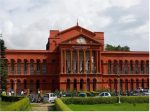
COVID-19 infection can change structure of our genes: Study
PTI, Mar 24, 2023, 11:19 AM IST

Credit: iStock Photo
People infected with the SARS-CoV-2 virus may experience changes in genome structure that could explain their immunity-related symptoms and risk of long COVID, according to a study.
The genetic materials in our cells are stored in a structure called chromatin. Some viruses of other categories have been reported to hijack or change our chromatin so that they can successfully reproduce in our cells.
Whether and how SARS-CoV-2 may affect our chromatin was not known.
The latest study, published in the journal Nature Microbiology, comprehensively characterised the chromatin architecture in human cells after a COVID-19 infection.
”We found that many well-formed chromatin architectures of a normal cell become de-organised after infection,” said Wenbo Li, senior author on the study and associate professor at the University of Texas Health Science Center at Houston, US.
”For example, there is one type of chromatin architecture termed A/B compartments that can be analogous to the yin and yang portions of our chromatin. After SARS-CoV-2 infection, we found that the yin and yang portions of the chromatin lose their normal shapes and start to mix together,” Li said.
Such mixing, the researchers said, may be a reason for changes in some key genes, including a crucial inflammation gene, interleukin-6, that can cause cytokine storm in severe COVID-19 patients.
A cytokine storm is a severe immune reaction in which the body releases too many cytokines into the blood too quickly.
Cytokines play an important role in normal immune responses, but having a large amount of them released in the body all at once can be harmful.
The study found that chemical modifications on chromatin were also altered by SARS-CoV-2.
”The changes of chemical modifications of chromatin were known to exert long-term effects on gene expression and phenotypes,” added Xiaoyi Yuan, who contributed to the research.
”Therefore, our finding may provide an unrealised new perspective to understand the viral impacts on host chromatin that can associate with long COVID,” said Yuan. Researchers hope these findings will pave the way for more research to understand the long-term impacts of the virus.
”This study elucidated to us how SARS-CoV-2 can uniquely alter our chromatin to cause COVID-19 symptoms. Future work will focus on understanding the mechanisms of how SARS-CoV-2 can achieve this,” Li added.
Udayavani is now on Telegram. Click here to join our channel and stay updated with the latest news.
Top News
Related Articles More

World Malaria Day: WHO calls for equitable health access

What role does genetics play in breast cancer? How can genetic testing help with early breast cancer diagnosis?

Father’s diet can affect anxiety in sons, metabolism in daughters: Study in mice finds

Low back pain, depression, headaches main causes of poor health: Study

Surgical options for Parkinson’s disease
MUST WATCH
Latest Additions

NIA arrests key accused in 2023 attack on Indian High Commission in London

Three persons run over by train in Bengaluru

Indian nationals aboard ‘MSC Aries’ in good health, return delayed due to technicalities: MEA

Husband has no control over wife’s ‘stridhan’: SC

IT sleuths threatening raided leaders to claim money belongs to me, Cong: DK Shivakumar
























